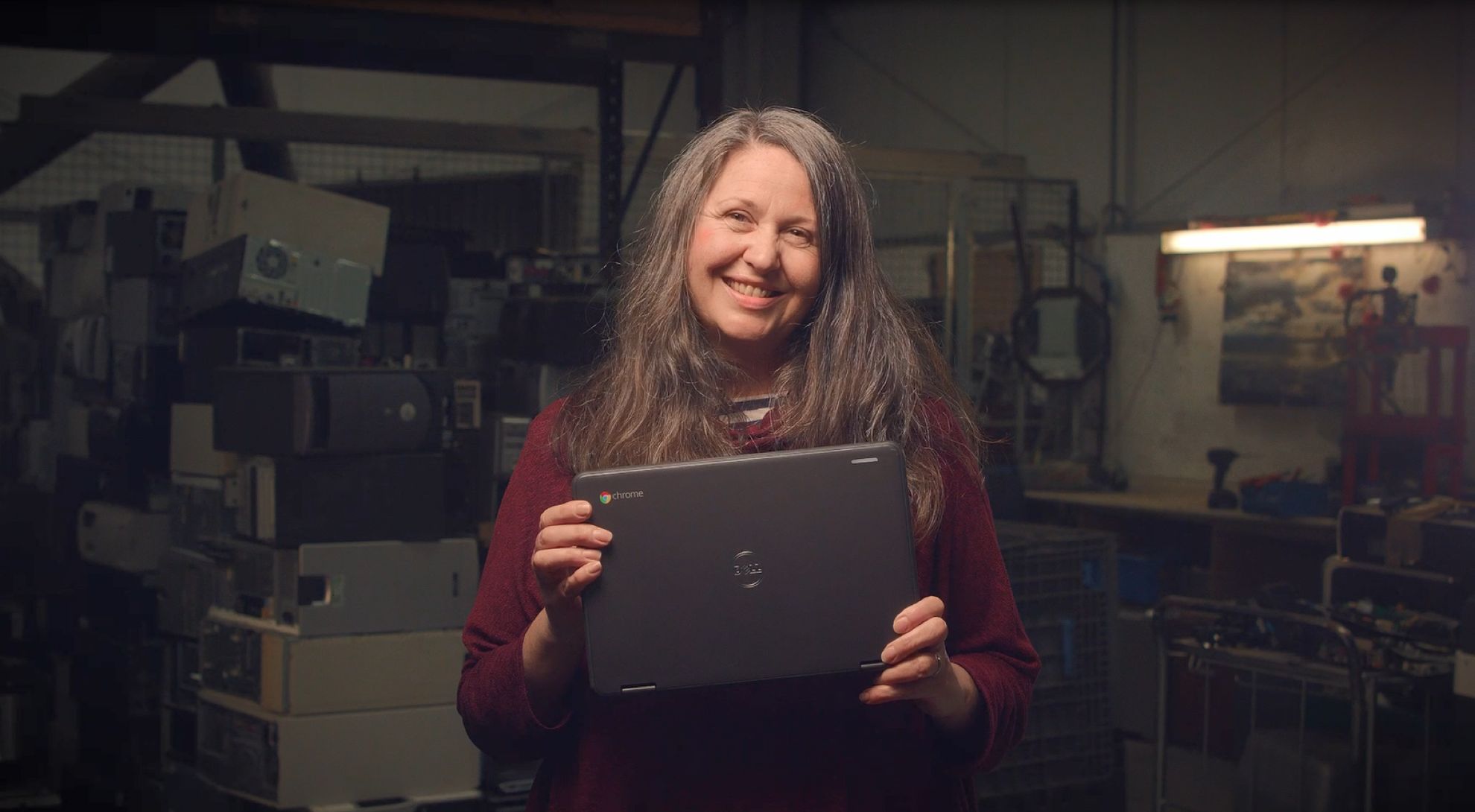
Changing the shape of product design and manufacturing in the Highlands and Islands

Imagine a world capable of designing and manufacturing products in such a way that they can be used and re-used for as long as possible, maximising their full value.
Where by-products are captured and used to create additional valuable commodities. And then, at the end of their life, products are refurbished or remanufactured into other high-value, high-quality products. ILM Highland is on a mission to bring this exact service to communities across the Highlands and Islands.
Tackling technology inequality
Established in 1994, the independent charity and social enterprise provides home improvements, electrical recycling and retail services by refurbishing goods ranging from washing machines to microwaves.
All profits made from sold refurbished goods are reinvested in charitable services to support the elderly and community groups living across the region, helping to tackle technology inequality.
So, when the opportunity came around to refurbish over 800 worn-out laptops to turn into Chromebooks, the charity was thrilled to take the project on board. Chromebook devices are a light, compact alternative to laptops – offering all the tools you need to browse, stream and create.
The laptop refurbishment scheme came to life after a previous partnership with the University of Strathclyde, tasked students with developing sustainable income generation strategies that fed into ILM Highland’s circular business model. The students came up with a solution: to refurbish a staggering 804 old laptops, the equivalent of one tonne of landfill waste, into state-of-the-art Chromebooks.
Realising the potential waste reduction and the opportunity to provide accessible electrical equipment to schools, local community group, Red Chair, and private buyers, ILM Highland took on the project with support and funding from Zero Waste Scotland part funded by European Regional Development Fund.
The results
Embracing the circular business model enables businesses like ILM Highland to reduce costs, generate new income streams and open up new markets.
Claire Weaver, business development manager at ILM Highland explains more about the project.
“It’s important to look at the circular economy from a holistic perspective.
“It’s about taking a step back, looking at your business as a whole and assessing where improvements can be made to be more aligned with the circular economy.
“This was our exact approach when taking on the refurbishment of over 800 laptops that were otherwise destined for landfill. The opportunity perfectly reflected our missions of reducing electrical waste while making technology more affordable and accessible for people living in the Highlands and Islands.”
The project also resulted in a team expansion for ILM Highland. After carrying out a thorough analysis of capabilities, the team hired a new finance assistant role for the duration of the project. ILM Highland also partnered with local recycling plants as well as third-party recycling suppliers to source the old laptops.
Once the laptops were all refurbished into fully functioning Chromebooks, they launched the project backed by a full marketing campaign to generate sales. The response they received from local communities was overwhelming.
In addition to project funding, Zero Waste Scotland provided ILM Scotland with support to calculate the carbon reduction amount from refurbishing the laptops. The 804 laptops roughly equated to a reduction of 26 tonnes of carbon.
Claire continues: “The circular economy is core to our business model, and with the financial support and methodology assistance from Zero Waste Scotland, we can safely say the project has been a meaningful investment.
As well as reducing a significant amount of carbon emissions, the project has helped to support behaviour change from consumers across the Highlands and Islands when considering purchasing pre-loved technology. Supplying schools and community groups with Chromebooks has meant all ages have access to technology."
“By purchasing refurbished products, customers can help reduce waste, increase reuse levels, and reduce carbon emissions through environmentally friendly methods.”
